Re Education : Issue #17 - Moska Afghan : “We are slowly being erased”
A newsletter about international education development
(If this message does not format properly in your email - please click the “Read in App / View in Browser” above, top right).
“When schools are banned, the ink of opportunity runs dry, leaving our futures written in the margins of neglect."
(@EduCannotWait ; #LetAfghanGirlsLearn)
Introduction
As the eyes of the development world are focused on the defenestration of USAID and the death-by-a-thousand-cuts of FCDO, Dutch, French and European Union aid, it’s easy to overlook the plight of the women and girls of Afghanistan.
But, upholding the values that underpin development : a belief in a world that looks outwards not inwards, and the commitment of nations to empathy for others less fortunate, means keeping focus and attention on both disadvantaged individuals and societies at the same time.
This month’s interview is with an 18-year old girl in Afghanistan who goes by the pseudonym Moska Afghan (Moska means “the smile or expression of happiness”). She has a Substack called Letter from Kabul : Freedom and Education which she writes in Pashto and self-translates to English. I would strongly advocate signing up (link below) ; if you can be a paid subscriber even better. And, if you enjoy the interview below, please share widely.
Moska Afghan speaks plainly and honestly of the terrible trauma that is taking place in Afghanistan, of her fears and sadness, but also of the things that give her strength, hope and encouragement.
I interviewed her recently via third parties. A brave voice - one that needs to be heard.
Andy Brock, March 2025
Subscribe for free and receive each issue of Re Education automatically to your inbox.
Moska Afghan : “We are slowly being erased”
Andy : Can you describe how you are coping with not having access to educational opportunities ?
Moska Afghan : When schools were shut down, I was in shock. It was an event we had never even imagined. Afghans, especially Pashtuns, had not been supporters of girls' education even before. I was among the fortunate girls in Afghanistan, who were very few in number.
I was overcome with anxiety. I kept hoping for good news, but day by day, things only got worse. I turned to books. Reading gave me perspective, and in a way, it pulled me out of despair.
Near our house, there was a park. Unlike schools, parks hadn’t been closed yet. One day, I went there with my mother. I saw many girls returning from courses, learning different skills.
I convinced my family to let me join a course. It wasn’t easy, given our financial struggles. With a low fee and in a very basic setting, I began learning English and other skills.
Then, the parks were closed. Universities were closed. Courses were shut down. Once again, my education was cut short.
I turned to a madrasa. One thing struck me there—how pleased the government was with these institutions. The version of religion they promoted had no place for women. Yet, in these madrasas, girls discovered themselves and their rights within faith.
Everything was being shut down. Many girls, left hopeless, were confined to their homes. Most of my classmates and friends got married. Some courses reopened under the name of madrasas.
Girls like me learned languages and skills that connected them to the world, allowing them to build networks. Most families had never been enthusiastic about girls' education, even before the restrictions. But now families like mine, who had always supported me, were also becoming disheartened. Our feelings, our hopes—seemingly leading nowhere.
Yet, we talked. We shared our struggles and searched for solutions together. We understood each other deeply.
Revolutions take time, but I believe, this time, women will be at the forefront.
Andy : What strategies have you, and other girls you know, adopted to get around the prohibitions introduced by the Taliban ?
Moska Afghan : Many girls fell victim to these circumstances. Many families feared that these restrictions might last a long time, so, some girls got married, seeing it as the best way to secure a family for themselves.
Yet, many others did not give up on education. They read books, secretly attend courses under their Hijabs, and continue learning in different ways to resist these challenges.
Andy : Are there possibilities to keep on studying via technology platforms ?
Moska Afghan : In today's world, the advantage of the internet is that it allows me and many other girls to access educational opportunities, build connections, and connect with the world. However, for many girls, access to the internet is limited; in some areas, the internet either doesn't work properly, is too expensive, or they don't know where to start. Some girls are unfamiliar with online learning and believe they cannot learn this way.
Andy : What are the attitudes of the men in your family and extended family towards these prohibitions ?
Moska Afghan : In the past, many men were not in favour of women's education and progress. They believed that when a girl is young she is like a white cloth that gets easily stained, meaning she becomes subject to criticism or blame, as stains can easily tarnish her reputation. Therefore, many men preferred that young girls stay at home and get married at an early age.
During the Republic era, our society was gradually moving towards change, and men were slowly becoming more supportive of their daughters and sisters pursuing higher education and gaining knowledge. But, with the new government, that trust is fading. The old beliefs and attitudes about women are regaining strength. If the situation and the government remain the same, women will once again be confined to their homes, seeking only to please men and earning "reward" in this way.
In this situation, many men are happy. Some men who used to support girls' education are now afraid of government restrictions and see women's education as pointless under these conditions. Previously, women worked independently and contributed to supporting their families, but now they are seen as a burden on men.
Andy : What would you like the outside world to do ?
Moska Afghan : Afghans, especially women, hope that the United Nations and the international community stay informed about human rights violations across the world and take immediate action against crimes against humanity.
However, unfortunately, the international community is so entangled in its own crises that it pays no attention to the situation of Afghan women. They assume that only killings and bombings qualify as crimes against humanity, while the fact that Afghan women are deprived of books, expelled from work, and reduced to mere objects for satisfying desires does not seem to concern them.
A society that is forced into ignorance and raises an uneducated generation is not only a danger to Afghanistan but to the entire world. If this regime continues and the international community remains deaf to the cries of Afghan women, in a few years Afghanistan will resemble either a zoo or a jungle.
We call on the world to hear our voices. Our dreams are being bombed, our hopes are being shattered, and we are slowly being erased. The world must fully support Afghan women, provide them with access to education, and exert pressure on those in power to recognise women's rights so that we may be acknowledged as full human beings.
Andy : Is there any piece of art, literature, poetry or music that best expresses how you feel about the present situation ?
Moska Afghan : This situation is as general as it is personal. For one person, the greatest pain is the absence of a school. For another, it is being away from family. Another once had a good life but now speaks in fear. Someone used to have a salary that supported their entire family, but now, even in their own home, their words hold no value, and they are bewildered by life. For one, it was their final exam. For another, exile feels like poison, while to someone else, their country has become a living hell.
This tragedy has so many dimensions for me that I don’t even know how to fully feel them all—let alone express them.
The song below is one of the most beautiful songs of our time. In this song, the voice of today's women is expressed through the old form of traditional poetry Landai and sarokai, as if our current aspirations have been conveyed through the language of music.
Haroon Bacha - Maktaboona (Charbaita) (New Pashto Song, 2025) | Qurban Tapay | Stargi Na Lari Topak
Other resources :
A new film about four Afghan girls, released 7th March 2025, called Rule Breakers, Directed by Oscar-winner Bill Guttentag. More info here.
Afghan short film available on BBC - Storyville - Inside Kabul - BBC iPlayer
Breadwinner (2017) an animated film about a young Afghan girl.
Bread and Roses (2023 film) about three young Afghan women.
Charmaghz turns 7 🎉🎉 this video shows the good work they are doing.
UNESCO Report on Girls’ Education in Afghanistan
News
In a period like this it’s tempting not to write anything because the daily news is so volatile. Last month when I wrote of the destruction of USAID that :
this act of deliberate self-harm seems designed to cause maximum political pain with no care at all for the cruelty and real pain inflicted on the most vulnerable.
I had little idea that only days later a Labour Prime Minister would instigate the greatest cut to UK Aid ever seen, as a sop to a philistine US administration. It was billed as a “hard choice” and was anything but. Her department decimated, Anneliese Dodds, the International Development Minister, resigned.
Most development professionals I know are pretty practical as well as idealistic / optimistic. They knew that there were serious problems with “aid” and that the cracks were ever-widening. But, they also knew you rarely get significant change without buy-in, unless terror is your game.
Just smashing things is an easy choice ; you don’t need to understand or deal in nuance. But, unless you have an alternative vision - and I don’t believe any of the governments who have indulged in this wanton vandalism do - you leave the space for others to define. That’s where those who want to see something good emerge from this need to be : at the forefront of defining that new reality.
So, I provide a selection of links below to some of the best articles I have read on the existential crisis facing the aid world. Most are strong on analysing the features of the current map - only a few are starting to define the contours of the path out. That is going to take a collective effort.
Ken Opalo again, one of the best thinkers around : (1) African countries must urgently start the process of ending aid dependency
Al Jazeera’s Patrick Gathara : Why some in the Global South are not mourning the demise of USAID | Opinions | Al Jazeera
Jens-Peter Kamanga Drybak : Western relevance - Development Aid Needs Disruption
Stefan Dercon on why Musk is Wrong
Marina Kobzeva on how INGOs / NGOs have a runaway trolley problem.
Ben Phillips with a timely 3-minute Vlog reminder to avoid The Five Traps
For those directly affected by these cuts, Nora Marketos, who publishes Education and AI, has launched a new service called PurposePhil Career, a job and consultancy platform for the philanthropy sector.
Development
AI-for-education.org has put out a call for AI FLN materials. Are you sitting with relevant material on your hard drive that could be shared and used to train local LLMs ? Respond to the call !
Feedback : Thanks to all who commented on my request for feedback on the first anniversary of Re Education. I tried to tease my subscribers a little by asking why 40% wouldn’t open the post – in fact it was 50% - but then, part of the feedback I got was not to worry about this kind of thing ! So, I’m not going to. Thank you to the lovely people who made comments, I appreciate the time and thought you put into it : the advice was both heartening in its positivity, and practical.
For those who would still like to comment, I have left the feedback form open. It’s five questions and completely anonymous.
Voices from the front
With all the focus on AI at the moment, it’s easy to forget that sometimes traditional channels of communication are still the best e.g. radio. Leh Wi Lan has just distributed 400 more radios to schools in Sierra Leone and in Nigeria, ACE Charity is reaching thousands of children through radio - more in a future issue.
An interesting article in the Hechinger Report - a newsletter mainly devoted to education in the USA. They report on a study in India by Nobel Prize winners, Abhijit Banerjee and Esther Duflo, showing that street sellers can do incredible arithmetic in their heads but fail in a classroom.
Voices from the rear
(Gray and Published Research)
Education.org has published guidance to policy makers and practitioners on Accelerated Education Programmes for girls. All good stuff, but is it being acted on ?
UNESCO has published a new report called “The future at risk: Why investing in education is critical”. They say if you tell a lie often enough people start to believe it. Is the opposite true ?
Even though I reported this research in Issue#1 of Re Education, I’m going to keep banging this drum. Amory Gethin has produced a new blog about the contribution of education to global development, well worth reading if you don’t have time to read the original paper. The blog has some just stunning headlines – why is this not being shouted about by all educators everywhere ?!!
Education accounts for fully half of total economic growth and two-thirds of real income gains among the world’s poorest 20 percent since 1980, based on my findings in a recent paper (Gethin 2023).
There’s more on the contribution of secondary and higher education too, not just basic education. I know I am preaching to the choir here, but all of us who value education and it’s role in economic development, as well as it’s role in personal and social development, should be sharing this blog / paper with policy makers and politicians wherever we get the chance !
Lots of interesting stuff in the World Bank Education Newsletter this month, including Adolescent girls and STEM, Learning in Edo State, a $70m investment in foundational learning, and more.
…and finally
Is it education that makes us smarter…. or chocolate ? Aiming for that Nobel prize ….stock up on the sweet stuff !
If you know someone who would be interested in reading this newsletter, please pass on, by clicking the share button below. Subscription is free - subscribers receive each issue of Re Education automatically.

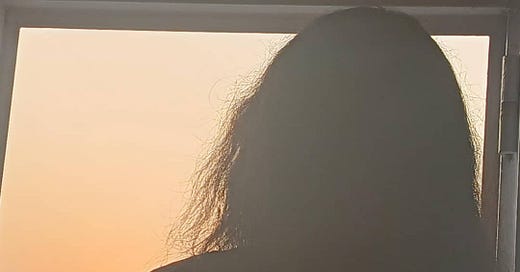


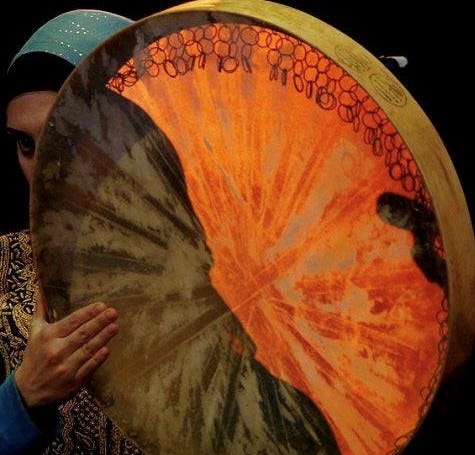

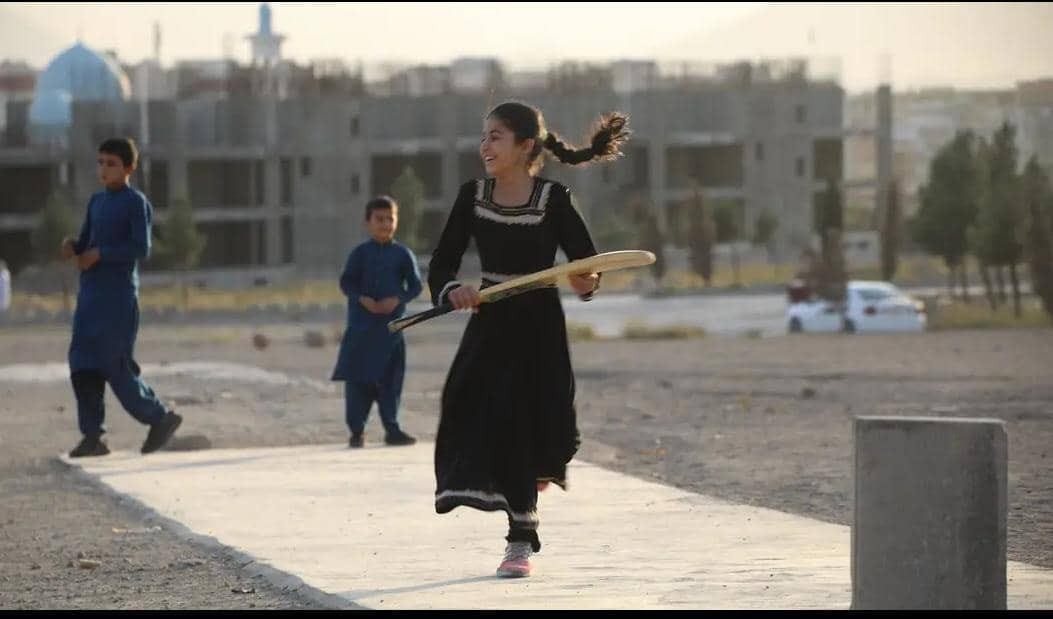
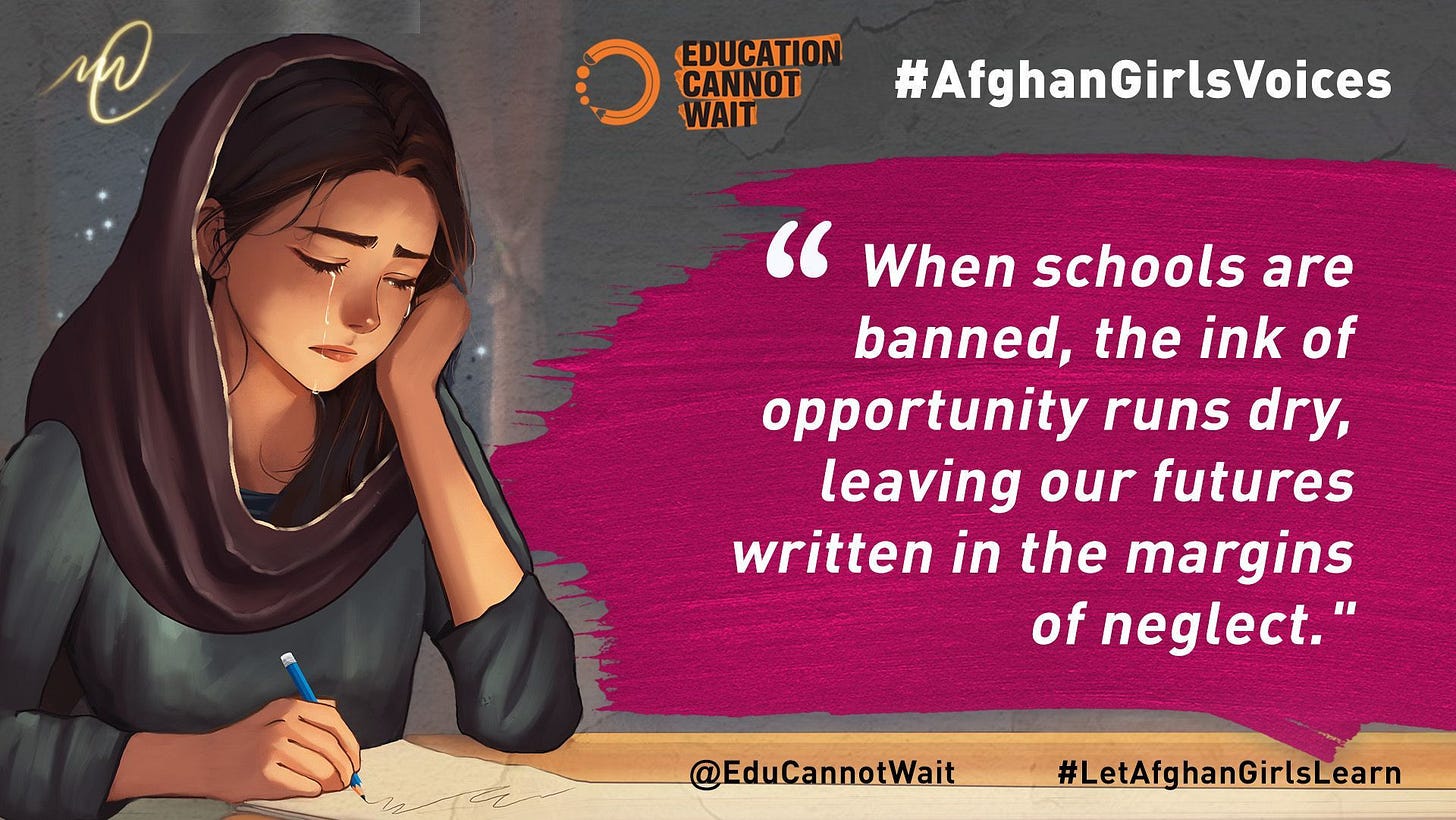

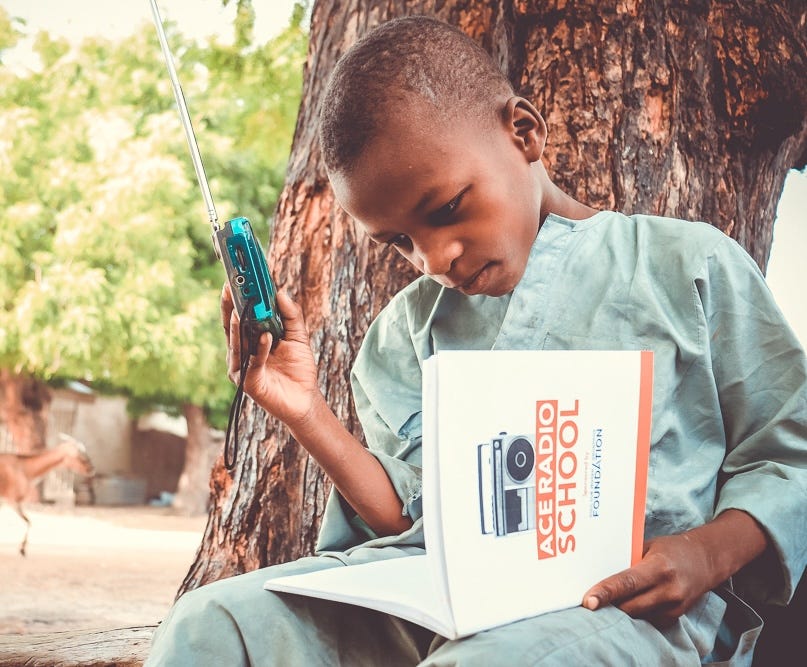
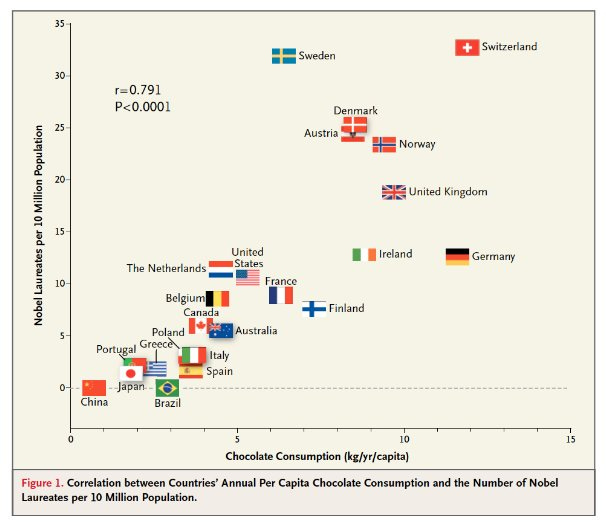
Thanks to Moska Afghan for her courageous initiative. I am curious to know whether this ban on education for women and girls in Afghanistan has been applied uniformly across all socioeconomic groups or if there are differences based on income levels.